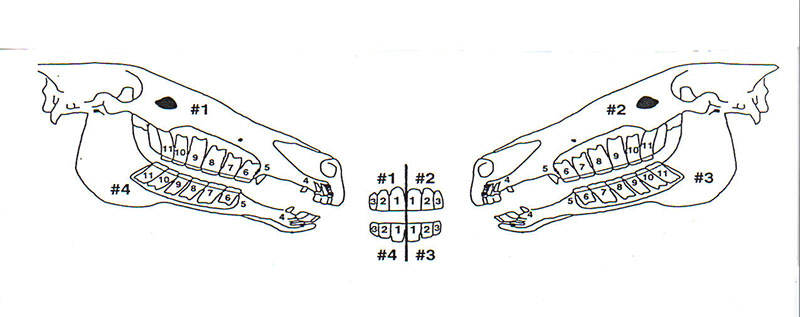The incisors play a very important part in the full mouth balance of the horse as well as in the health and safety of the animal. The majority of the time the incisors are over looked in a regular float by the owner as well as the person doing a float. We know a horses teeth grow as they age. Horses in our environment are not always allowed to graze a lot. Natural abrassives called silicates found in the grasses they would normally come in contact with are not available,due to a lot of our horsesbeing stalled etc. leaving them with a distinct disadvantage in that the wear factor lost by lack of grazing allows for minimal wear of the front teeth causing an over long situation. The over long teeth come together in the front hindering the molars or jaw teeth from coming together to achieve the desired good grind and decreasing the food value of food injested. This adds greatly to the chance of colic, because the horse is unable to close the mouth fully to chew, grind (masticate) their feed. When a horse gets corrective or routine floating by a compitent vet or equine dentist the incisors should be a routine part of the full mouth balance you are trying to obtain. If the molars are floated and attention is not given to the overlong incisors they will hit and thus creating a gap or space in the molars causing a bad grind, feed dropping, and increasing the chance of collic. Many horses suffer from imbalances in their molar tables thus creating smiles, wedged incisors,and possibly they may become parrot mouthed. A person properly trained and educated will take the time to make the necessary corrections to the horses incisors in an attempt to gain the full mouth balance desired in the horses mouth.
* IF THE MOLARS CAN’T COME TOGETHER THEY CAN’T GRIND.*
